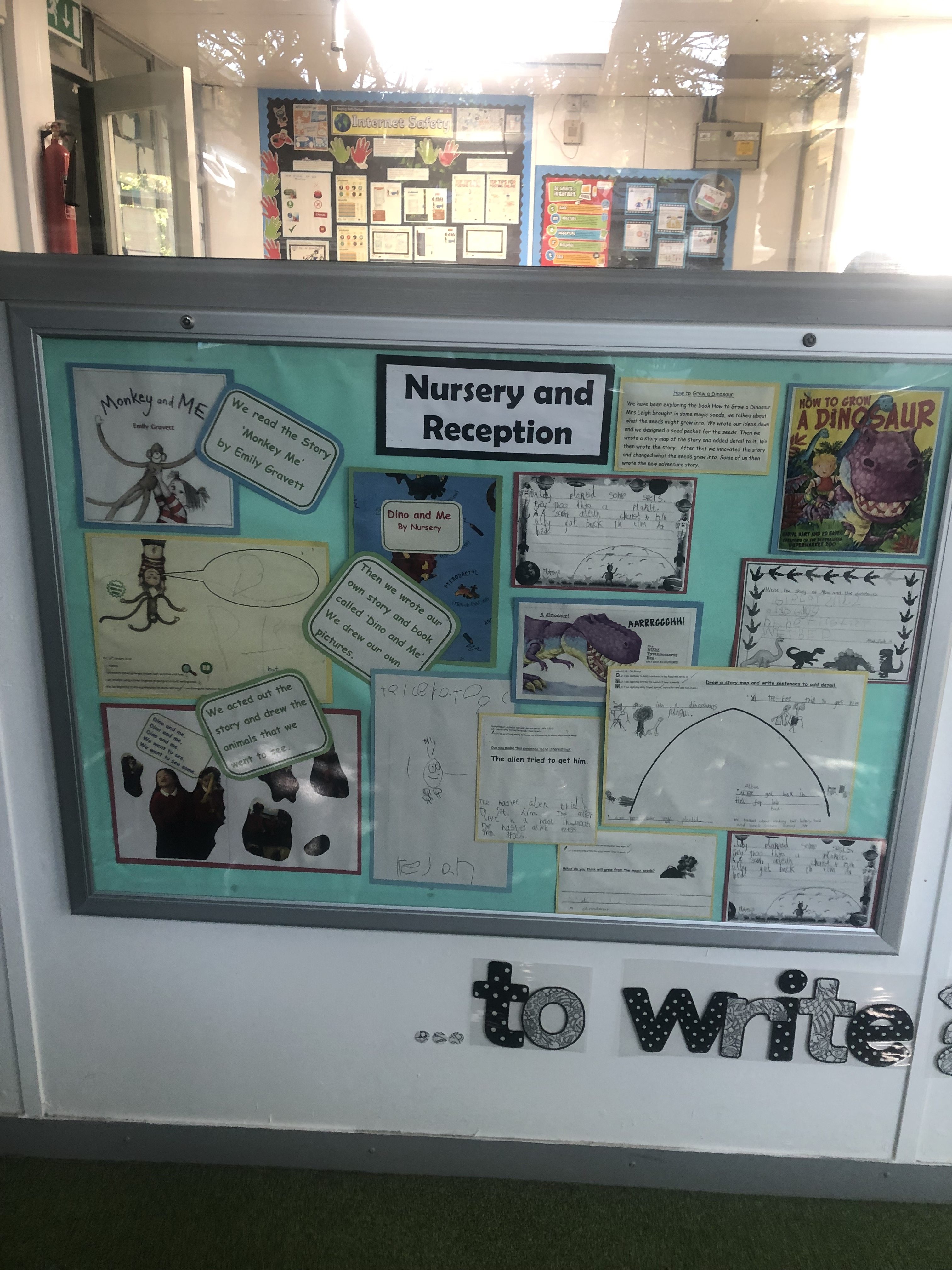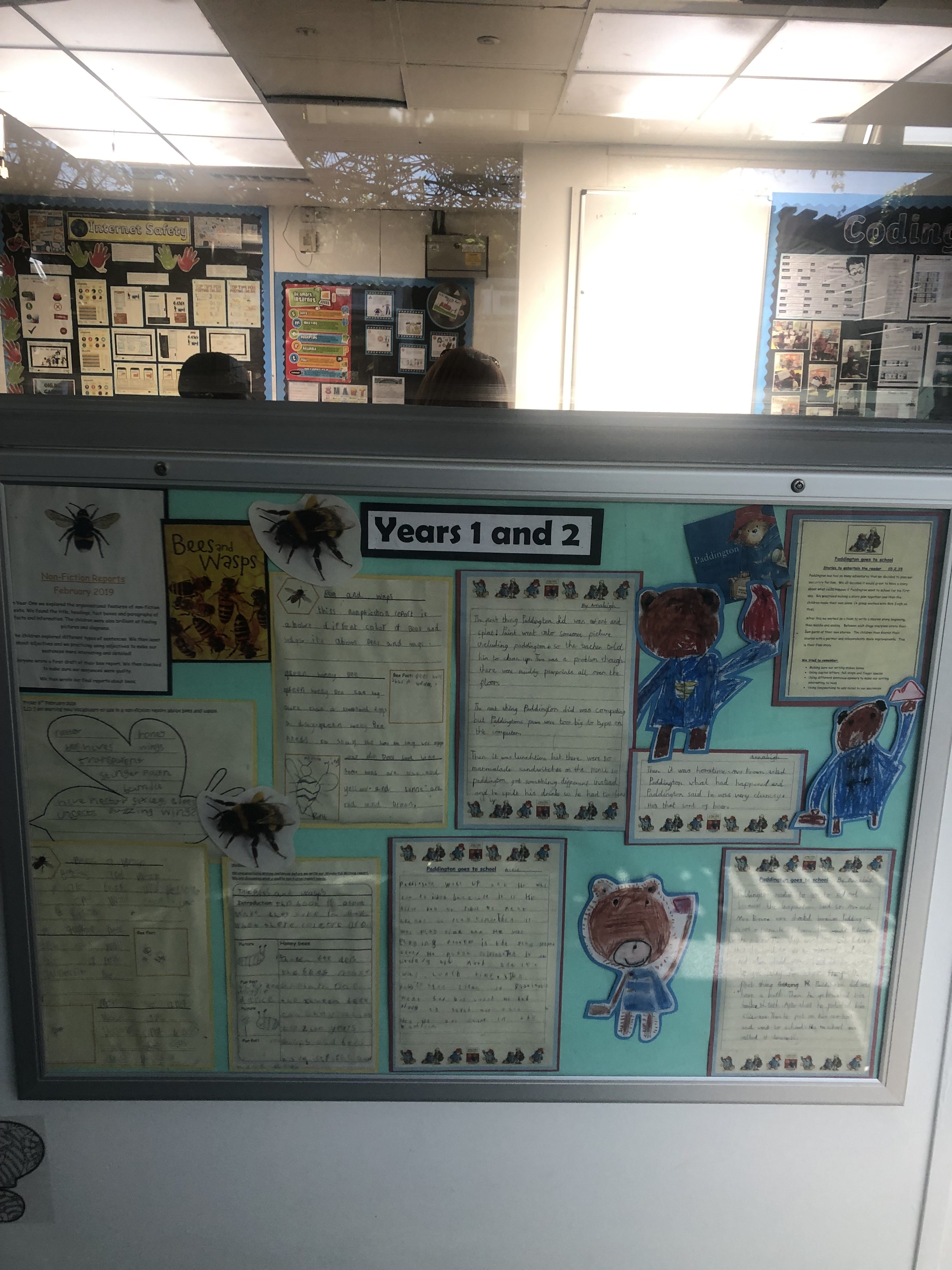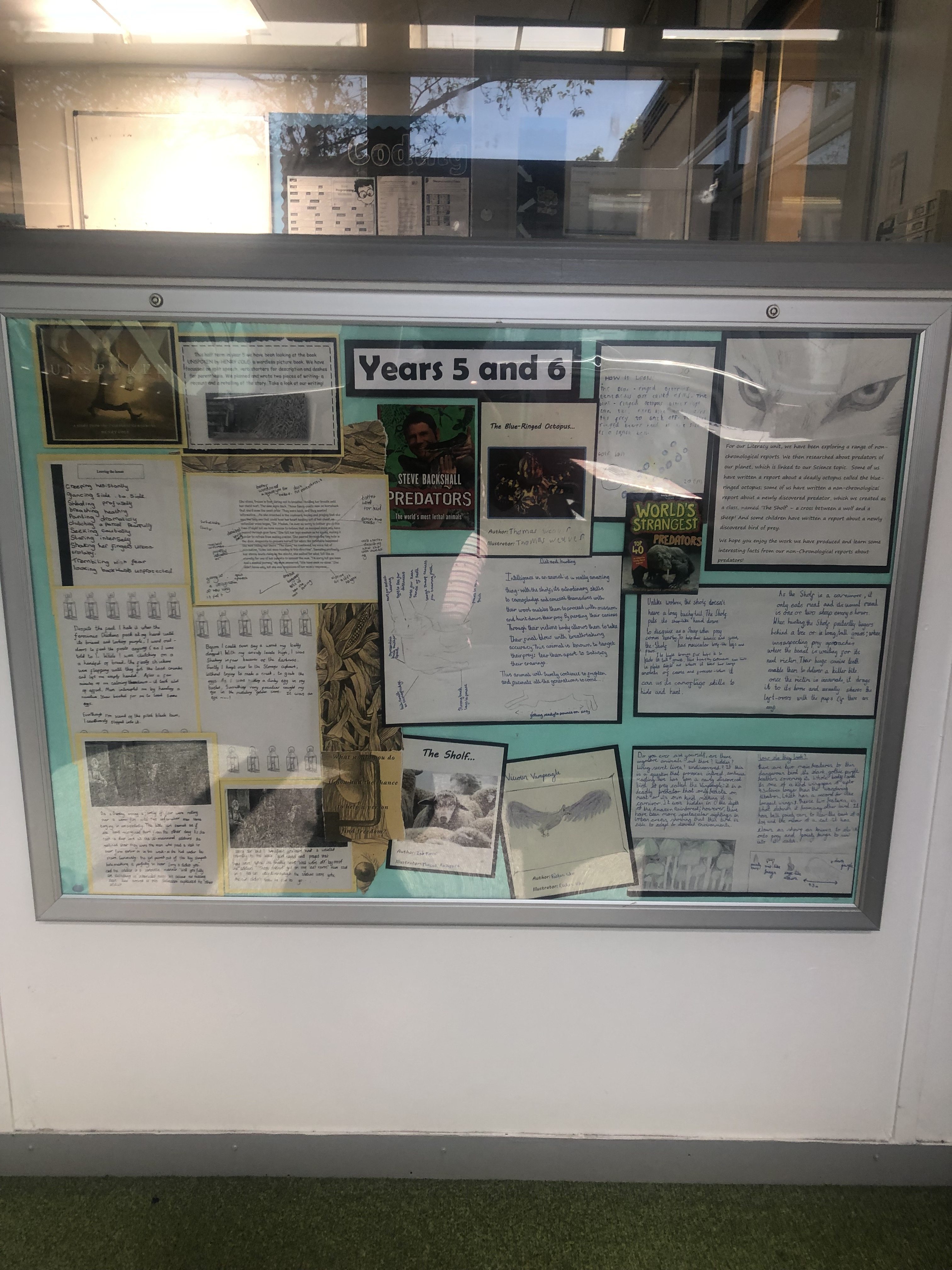Curriculum
Writing
At St.Clement’s we believe that a quality Literacy (English) curriculum should develop children’s love of reading, writing and discussion. Our Literacy lessons develop pupils’ oracy skills, vocabulary and knowledge of author’s styles. Pupils will also gain a clear understanding of the purpose and impact of the writing, and will learn to write for different audiences. Through explicit teaching and exposure of a range of writing skills, pupils will gain a secure understanding of the writing skills they are being taught and will develop their confidence to apply them in their writing.
We want our pupils to understand developing their oracy, their reading skills will help them become confident writers and most importantly we want children to be motivated writers and be see themselves as authors. We want our pupils to be inspired by authors and learn from authors and explore using different author’s styles.
Throughout the year pupils will be exposed to a range of genres of writing and develop an understanding of the purpose of these genres and that all writing has an intended impact. Through our agreed ‘Literacy Learning Journeys’ we develop pupils writing skills throughout the 3 phases:
Phase 1: We are writing explorers…/Phase 2: We are planning for our writing…/Phase 3: We are authors…
We believe it is essential pupils understand the process of writing that all authors have to invest in. We believe that children need to develop a secure knowledge-base in Literacy, which follows a clear pathway of progression, beginning with the foundational skills need to become authors. We have also implemented some elements of the Write Stuff approach and these enhance the teaching of writing in our school. We feel this approach prioritises pupil’s understanding and use of language, which we believe needs to be at the forefront of all our teaching. It also supports children understanding of the key elements of writing through its very visual approach and emphasis on teaching of writing skills through teacher modelling, so pupils see the purpose and impact of writing skills being modelled live and in context.
As a result, our Literacy Learning Journey provides children with the tools to write confidently, creatively and more independently:
- have the ability to write with fluency and have an authorial voice;
- Apply their hand writing skills to ensure their writing is well presented in their final drafts.
- Apply taught spelling patterns and attempt to spell more challenging words.
- Re-read their writing, proof read and edit and improve their writing to ensure it is the best piece of writing it can possibly be.
- To apply writing skills they are exposed to and taught across the curriculum at their best standard across the curriculum.
- Celebrate being published authors and creating their own Wonderful Writing Books to share their best writing extracts/pieces.
We believe that a secure basis in literacy skills is crucial to a high-quality education and we believe our English curriculum will provide our pupils with the tools they need to participate fully as a member of society, provide them with the foundations and tools to access future learning, fulfil future aspirations and enable our pupils to believe they can become future poets, journalists, novelists, playwrights.
Implementation:
The Literacy Learning Journey
Through our agreed ‘Literacy Learning Journeys’ we develop pupils writing skills throughout the 3 phases – as we believe it is essential pupils understand the process of writing that all authors have to invest in.
Phase 1 of the learning journey: Phase 1: We are writing explorers
Phase 2 of the learning journey: Phase 2: We are planning for our writing
Phase 3 of the learning journey: Phase 3: We are authors
Please click on the links below to view examples of our Literacy learning journeys:
The day the crayons quit learning journey
We want our pupils to be inspired by authors and learn from authors and explore using different author’s styles. Throughout the year pupils will be exposed to a range of genres of writing and develop an understanding of the purpose of these genres and that all writing has an intended impact. Please see below some examples of Literacy unit overviews that cover a range of texts and genres:
KS1 Literacy units yearly overview
KS2 Literacy units yearly overview
KS2 Literacy units yearly overview
See below the “writing rainbow” Which supports The Three Zones of Writing: The FANTASTICs (Ideas), The GRAMMARISTICs (Tools), and The BOOMTASTICs (Techniques) support their learning, precision and writing.
- The FANTASTICs system, which is also used in the teaching of reading, allows children to identify the nine elements that all text types are comprised of. When pupils are familiar with these nine elements, they are able to ensure that they are incorporated into their writing. The FANTASTICs help children to sharpen their understanding of their own and others’ writing by encouraging them to be observant and reflective.
- The 9 GRAMMARISTICs cover national curriculum requirements, capturing the broad spectrum of key grammar knowledge. Discrete gammar lessons are also taught to ensure specific grammar knowledge is taught and revisited.
- The BOOMTASTICs capture the ten powerful ways to add drama and poetic devices to writing. They help children structure their work, teaching them to showcase their writing voice, demonstrate originality and to take risks in a bid to capture the truth of a situation.
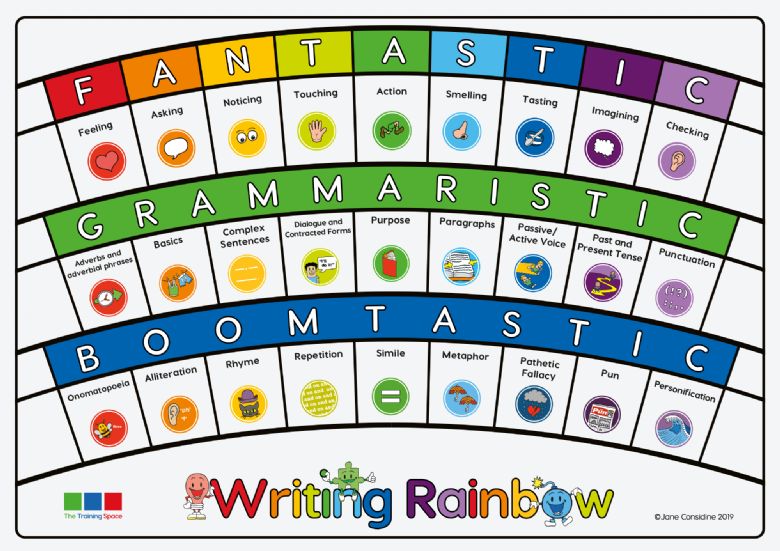
The Spelling Rainbow is a fully comprehensive approach that targets the “Three zones of spelling”. These are the patterns of spelling, the pressures of spelling and the remembering of spelling. We use this poster in school when working through ‘The Three Zones of Spelling’, as part of our spelling lessons.
The three tiers of the rainbow contain 27 spelling lenses to aid in the successful teaching of spelling.
- Structures for Learning: GROUPINGS
- ‘In the Moment Strategies’: IMPROVINGs
- Strategies for Learning: ACQUIRINGs
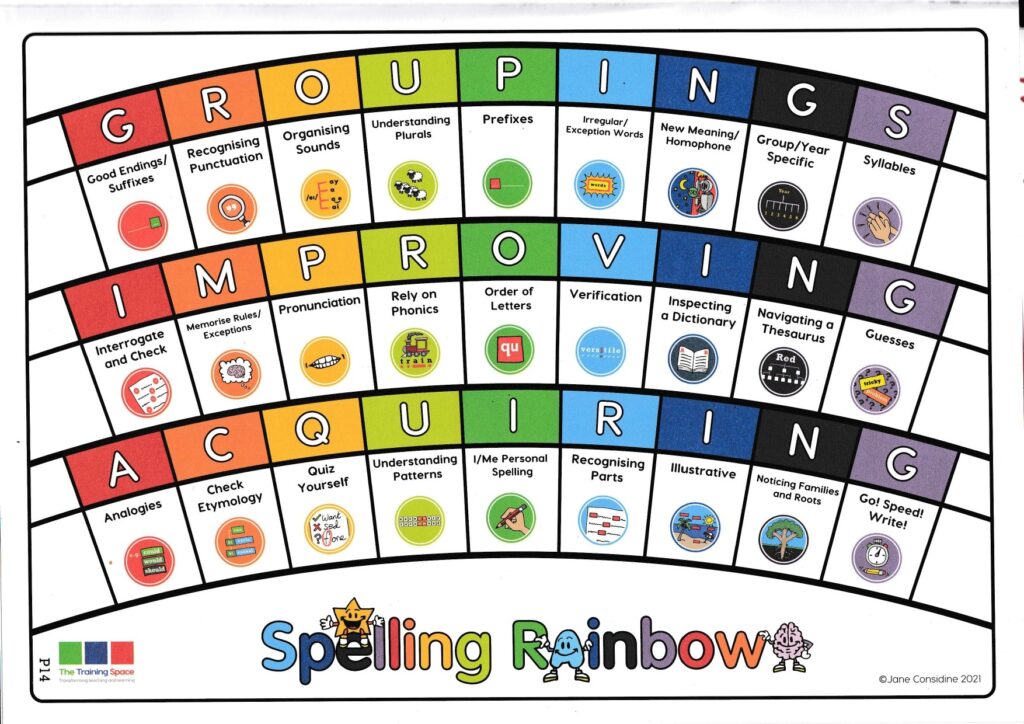
Our Literacy learning walls:
Through out our school we have consistent Literacy walls, which support our pupils to become independent, confident, motivated writers…
Celebrating being authors:
The power of vocabulary in our writing:
Exploring author’s word choices is a massive part of our reading sessions; we are also focusing and working extremely hard on making more precise word choices in our writing and carefully considering the intent of our word choices and the impact we want our word choices to have.

